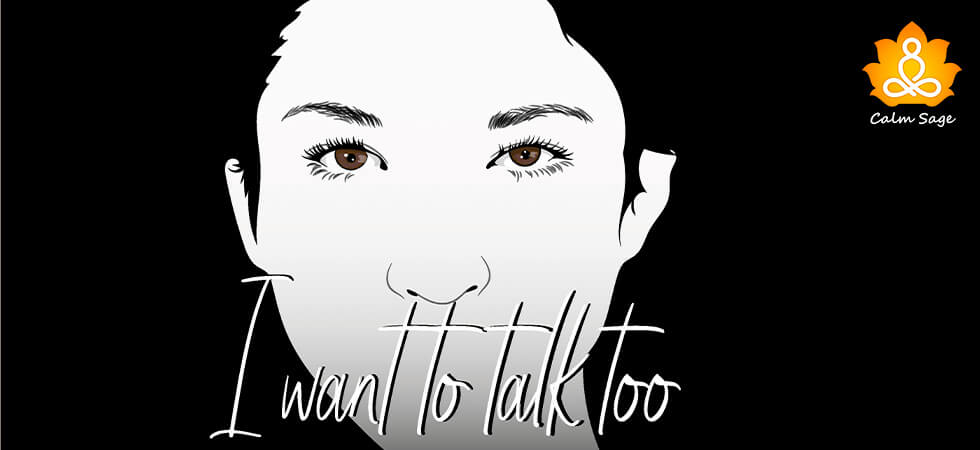Overcoming The Trauma Of Sexual Assault: Self-Help Guide & Counseling

“You are not the darkness you endured. You are the light that refused to surrender.”–John Mark Green
“You’re not a victim for sharing your story. You are a survivor setting the world on fire with your truth. And you never know who needs to light, your warmth and raging courage.”–Alex Elle
Aftermath Of Assault
For once, to understand the definition of sexual violence, it can be termed as any act of sexual nature where the person hasn’t given the consent. This consent is either by explicitly saying ‘No’ or through the body language which shows that you are not interested. Despite being a heinous crime for which an offender must be punished, it is a common truth of the society.
Sexual violence goes far beyond the physical injuries regardless of age or gender. It leaves the person mentally shattered where the clouds of nightmares, shock and PTSD surround the victim. There are trust issues with others and even with oneself. One may not feel like making eye contact with others and consider themselves as a ‘damaged’ person. It all combines to form anxiety, depression and other disorders that are challenging for a person to deal with alone.
Statistics show that only 63% cases are officially reported but it has been noticed that those who report the incident and fight for justice are likely to get proper treatment as they are content about punishing the offender for his crime. In case, you or your loved ones are dealing alone, the first self-help to overcome sexual assault and rape is to report the authorities
Myths & Facts Of Sexual Assault
You need to unveil some of the myths and facts of sexual assault to begin with healing from sexual assault.
Myth 1: Most sexual assaults are committed by strangers.
Fact: The truth is that only 10% of the rapes are committed by strangers whereas the major survivors have confirmed that their offender was someone known to them or someone they trusted.
Myth 2: The survivor has many injuries that can be seen.
Fact: Many survivors do not have evident physical injuries and it cannot be judged about their situation unless medically examined. However, the most common injury is psychological that seriously affects a person’s well-being.
Myth 3: Men are not sexually assaulted
Fact: More than 11% of men have reported sexual assault to London police authorities alone. The reality is that anyone can be assaulted but the myth has become one of the reasons for underreporting of cases.
Myth 4: Date rape is just a misunderstanding
Fact: Date rapists often try to escape by saying that it was a drunken mistake or misunderstanding. But it may be a shock to know that date rapists are majorly repeated offenders.
Self Help Guide To Recover From The Trauma Of Rape Or Assault
Accepting the assault mentally is next to impossible, but the healing begins only when this step is taken up. There are a lot of stigmas attached to the crime but this self-help guide may help you in reinforcing the lost emotions.
1. Open Up About Your Feelings:
- Even if you are considering the option for staying quiet, it is not going to work out longer. The truth will keep pinching you, but if you open up to someone you love and trust, you will set your soul go free of the chains holding you back. If you have no one around whom you can speak to, call a therapist immediately.
- Because you are feeling vulnerable, positive self-talks help you in reminding your own strength.
- Volunteer your time for noble deeds like visiting NGO, donating money for good causes and giving yourself a boost of self-care when alone.
- Call a support center and join the sessions where you can listen to other survivors. It helps you to feel better and less alone in the world. In case, you are not able to visit the therapists in person, online therapy is a great option to look for.
- Cope up with guilt by understanding that you were not responsible for what happened. The only person mistaken was the assaulter. Rather divert your mind by making a list of your favorite activities and indulge in one enjoyable activity every day.
2. Dealing With Flashbacks & PTSD
When the body comes to rest after the threatening situation has passed, you become sensitive to the smallest of the stimuli. There are flashbacks, nightmares and bitter memories that keep coming back and aggravates Post Traumatic Stress Disorder.
There could be common triggers that make the case worse like the same day or incident, hearing similar news on television, certain smells or sound, etc. In such cases, you must be prepared with the immediate steps like breathing exercises.
Take a deep breath in (1…2…3…4…) > Hold the breath (1…2…3…4…5…6…7…) > Exhale from your mouth (1..2..3..4..5..6..7..8..). Repeat the cycle for a few times in a relaxed position. These exercises could be more helpful if combined with professional treatment like Cognitive Behavioral Therapy.
Grounding Technique is another way that you can use during the nightmares and it can be done anytime, anywhere. Grounding means settling yourself in the present moment to connect all your senses (Smell, Sound, Touch, Taste and Sight).
- Sound: Play good music with lyrics or music with different melodies. Now pay attention to different sounds like cars passing by, ticking clock, etc.
- Touch: Feel the texture of your skin, clothes, furniture around you. With that, you can play with a rubber band or walk barefoot.
- Smell: Inhale the smell around you and keep focusing on the varieties.
- Taste: Eat a candy that can be chewed for long or slowly bite the citrus fruits.
- Sight: Now keep describing whatever you feel, see, touch and smell in your head with its size, shape and color. You can even now imagine beautiful places where you want to go next.
This technique will help you to settle in the place where you are while defying the anxiety or panic attack at the same time.
3. Connect Your Mind & Body Once Again
There are times when you feel physically shut down, feel like your body and surroundings are not connected, have trouble in concentration but this needs to be done right with your planned routine and indulging in fruitful activities.
For example, instead of overthinking, plan your days with activities like mindfulness meditation, Yoga, massage by an expert, intense dancing, etc. If you plan in advance (in the table below), you will be oriented with the future direction. When your body and mind gets in sync, you won’t drive yourself to do something irrelevant. Make sure you add lots of rest in the schedule given below to cope up the imbalance!
| Day | Morning | Afternoon | Evening |
| Monday | |||
| Tuesday | |||
| Wednesday | |||
| Thursday | |||
| Friday | |||
| Saturday | |||
| Sunday |
4. Keep Growing & Keep Socializing
Nurturing yourself post-sexual assault is a very gradual process and doesn’t show results overnight. It is a lot difficult to move away from the memories but you must take care of yourself physically as well as mentally.
- Avoid overconsuming information on social media or be smart about it.
- Eat the right food, exercise regularly and sleep peacefully.
- Do not consume drugs, alcohol or any other kind of toxic substances.
With that, don’t stop from participating in social activities, reconnecting with old friends, meet new people and do things the way you were doing. Your efforts to recover from the trauma will certainly help you in moving forward and overcome sexual assault.
Avoid These Ways To Cope The Trauma
- Believing that you are fine and you can control the situation in some way.
- Consuming alcohol and other intoxicants to relieve the pain.
- Isolating yourself in fear of shame and worrying about the consequences of discussing it with anyone.
- Imagining the worst possible things around the incident
- Not paying a visit to mental health practitioner
Warning Signs: Ask For Help
Most common warning signs to note in a victim are depression, anxiety, suicide ideation, self-harming thoughts and lack of hygiene. Their performance at college or work place falls down sharply or the fear of being alone impacts them with additional nightmares.
If you are the one who wants to overcome sexual assault and rape trauma or you know someone who needs help, consider meeting a counselor for various therapies. With that, joining self-defense classes may help you in regaining confidence and trust yourself. It is sure that only time will heal the signs of pain but raise your voice for help! If you wish to get connected with a an expert professional, drop us an email at support@calmsage.com





















Such a valuable article Akanksha.. keep the good work going.
Thank you Praveen! Keep reading!
Perfectly written blog...loved your content
Thankyou Aayushi.
This is strong and very well-written piece of work. Kudos to the writer!
Thanks Veronica. Keep reading Calmsage blogs!